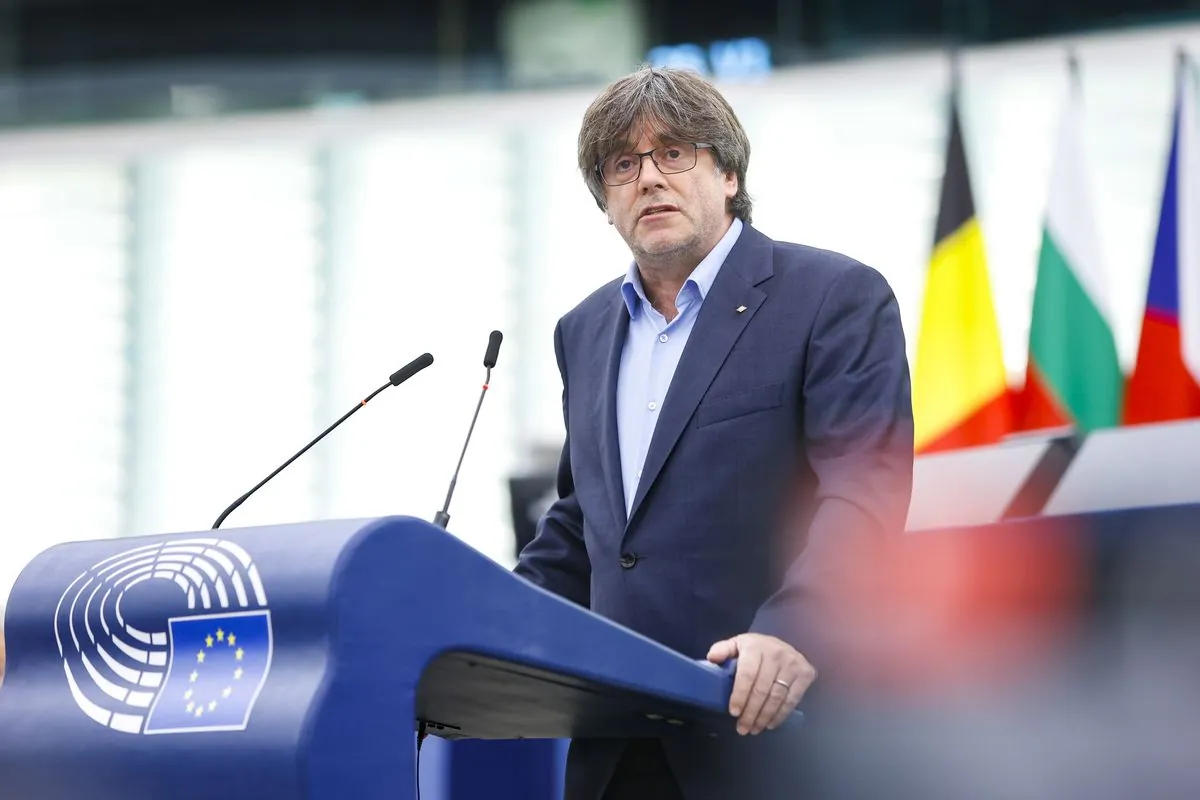Carles Puigdemont, the former Catalan leader who spearheaded the region's unsuccessful bid for independence in 2017, is poised to make a controversial return to Spain. This move, planned for August 8, 2024, could potentially reignite tensions between Catalonia and Madrid, seven years after the failed secession attempt.
Despite the Spanish parliament's passage of an amnesty bill in May 2024, the Supreme Court has maintained arrest warrants for Puigdemont and two associates on embezzlement charges. The 61-year-old politician, recognizable for his distinctive hairstyle, intends to attend the Catalan parliament's plenary session where lawmakers are expected to confirm Salvador Illa as the new regional leader.
Puigdemont's unconventional political journey began in 2016 when he was appointed head of the Catalan government, despite not having run for the position. His predecessor, Artur Mas, hand-picked him to avoid a new election. A year later, Puigdemont led Catalonia's controversial independence referendum, deemed illegal by Spanish courts.
Following the declaration of independence in October 2017, Puigdemont fled to Belgium to evade arrest. Since then, he has maintained a significant political presence from exile, founding the Junts per Catalunya party and securing a seat in the European Parliament in 2019. However, his legal immunity was revoked by the EU General Court in July 2023.
The potential arrest of Puigdemont upon his return could have far-reaching consequences for Spanish politics. The current Socialist-led coalition government, which relies on support from Puigdemont's party, may face instability if he is imprisoned. This delicate political balance underscores the ongoing tensions between Catalan separatists and the central government in Madrid.
Recent developments in Catalan politics have seen a shift in the region's political landscape. In the May 12, 2024 election, Puigdemont's party finished second to the Socialists, marking the first time in four decades that Catalan nationalists lost their parliamentary majority. This change reflects evolving attitudes towards independence among Catalan voters.
"If they succeed, I imagine what awaits me and know what I must do."
As Puigdemont prepares for his return, he maintains that any attempt to arrest him would be "illegal and arbitrary." His decision to re-enter Spanish territory represents a significant gamble, potentially sacrificing his freedom to reassert his influence in Catalan and Spanish politics. The coming days will reveal whether this bold move will lead to a new chapter in the ongoing Catalan independence saga or further complicate the region's relationship with Madrid.
